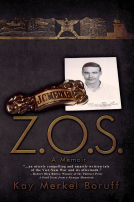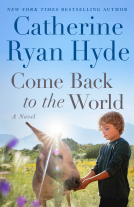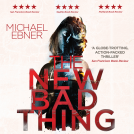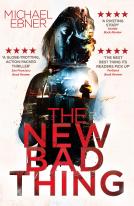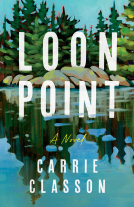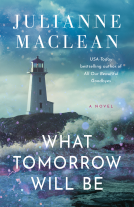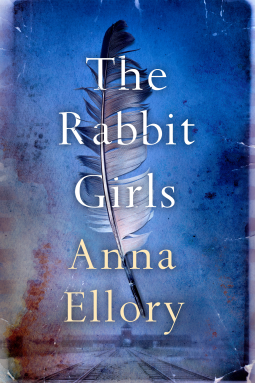
The Rabbit Girls
by Anna Ellory
This title was previously available on NetGalley and is now archived.
Send NetGalley books directly to your Kindle or Kindle app
1
To read on a Kindle or Kindle app, please add kindle@netgalley.com as an approved email address to receive files in your Amazon account. Click here for step-by-step instructions.
2
Also find your Kindle email address within your Amazon account, and enter it here.
Pub Date 1 Sep 2019 | Archive Date 29 Sep 2019
Amazon Publishing UK | Lake Union Publishing
Talking about this book? Use #TheRabbitGirls #NetGalley. More hashtag tips!
Description
Berlin, 1989. As the wall between East and West falls, Miriam Winter cares for her dying father, Henryk. When he cries out for someone named Frieda—and Miriam discovers an Auschwitz tattoo hidden under his watch strap—Henryk’s secret history begins to unravel.
Searching for more clues of her father’s past, Miriam finds an inmate uniform from the Ravensbrück women’s camp concealed among her mother’s things. Within its seams are dozens of letters to Henryk written by Frieda. The letters reveal the disturbing truth about the ‘Rabbit Girls’, young women experimented on at the camp. And amid their tales of sacrifice and endurance, Miriam pieces together a love story that has been hidden away in Henryk’s heart for almost fifty years.
Inspired by these extraordinary women, Miriam strives to break through the walls she has built around herself. Because even in the darkest of times, hope can survive.
A Note From the Publisher
Anna Ellory lives in Bath and has just completed her MA in Creative Writing at Bath Spa University.
Available Editions
| EDITION | Other Format |
| ISBN | 9781542007238 |
| PRICE | $24.95 (USD) |
| PAGES | 396 |
Average rating from 52 members
Featured Reviews
 Fran B, Media/Journalist
Fran B, Media/Journalist
This is one of the most compelling books I've read in a long while.
Miriam is nursing her dying father - and in the process learning - via a series of hidden letters - the truth about her father's history during the second world war.
Having been estranged from her father for some years she is desperate to make up for former misunderstandings but her abusive husband stands in the way of her helping ease her father's remaining days.
Anna Ellory has woven together a rich and complex story about love, survival and what it means to be human and the capacity we have, as a species, to be inhuman too.
Ellory's prose is evocative and yet easy to read and the book is beautifully crafted.
It's not always a comfortable read but it is haunting and riveting and is one of those books that will linger in the mind long after the last page has been turned.
 Cristie U, Book Trade Professional
Cristie U, Book Trade Professional
This book was a great piece of historical fiction! The premise of writing about women that were part of experiments performed by doctors at concentration camps. The main character, Miriam, finding out about her father's secret history during this time when having to care for him near the time of his death made this an emotional read. I thought it was brilliant of the writer to write this from both characters' perspectives.
 Rosemary S, Librarian
Rosemary S, Librarian
As Miriam Winter cares for her dying father, he calls out the name Frieda, and she discovers he has a numbered tattoo that marks him as a survivor of Auschwitz. As she looks into her father’s mysterious past she finds a prisoner’s uniform from the Ravensbruck women’s death camp filled with letters written to her father from Frieda. The letters tell the story of the “Rabbit Girls”, the women who were subjected to twisted and horrific medical experiments in the camp. Miriam uncovers a story of unbelievable cruelty, sadism and horror and the love that blossomed despite it. This story is heartbreaking, almost incomprehensible, yet beautiful in the humanity that survived in the most horrific of times
I received a free digital copy of this book from NetGalley in exchange for an honest review.
This was one of my most anticipated reads for 2019. I was super stoked when I got the notification that I would be reviewing this title. All I can really say is this is a magnificently heartbreaking story.
The story follows Miriam Winter who is caring for her ailing father. During this time, she learns of her father's true past during World War II. There is love and sadness, and just so many emotions through the pages of this book.
Since I was young, I have always been drawn to stories from WWII. My great grandfather fought in the war and often I would ask my family members of his time in the military as he passed away when I was six years old. With that being said, this book spoke to me on so many levels.
This isn’t what I would classify as an easy read, but it is definitely a MUST read. Anna Ellory’s writing was so eloquent, emotionally draining at times (in a good way!), and heartbreakingly intense. I found myself torn at times from needing to put the book down to reflect on the pages I had just read.
I want to graciously thank Anna Ellory for her beautiful story. I also want to thank NetGalley and Lake Union Publishing for the opportunity to review this title.
 Collette M, Reviewer
Collette M, Reviewer
Having recently read The Tatooist of Auschwitz I suppose my expectations were high but unfortunately my hopes were dashed. The subject matter fell into two really and both were told in a very long winded way with each merely delaying getting to the points of interest. There were also a few glaring unlikely moments for example I couldn’t understand how if Miriam had been nursing and tending her father she had not seen the number tattooed on his wrist sooner.
A story of love, Life and Death
I have read many books relating back to WWII and the holocaust. Although a good story this has to be the strangest story ever. I expected the story to be about the women in the camps they called "The Rabbit Girls" because of the experiments done to them. The book only mentioned them in brief instances.
The book was more the story of Miriam, her father, and his mistress Frieda. It is in fact three stories merging into one story. It starts in the 1980's in Berlin when the wall between east and west Berlin is coming down. It then progresses between that time and two other time periods. The stories are told back and forth but are marked so you know in which time period you are reading.
The first story is of Miriam and her abusive husband Alex. The trauma she feels dealing with him. It includes her friend Eva and a nurse Hani. She is told her father is dying and runs away from him to take care of her father. He finds her and is abusive to her . She is afraid to leave the apartment because he might be on the outside waiting for her. Her fear is real and her mental state is as well. Eva gives her the strength to finally say no to him and file divorce papers which causes another episode of abuse. She is not even safe at the hospital visiting her father.
The second story is the story of her father's mistress Frieda told from letters found sewn inside a dress translated by Eva and read by Miriam . The story in the letters is about Frieda's time in a German concentration camp . This story is where the Rabbit Girls are mentioned as when she was taken to the concentration camp she was taken in by the Rabbit Girls and bunked with them. She wrote letters telling of her time in the camp which were sewn inside a dress in the seams and found in her mother's closet by Miriam who found Eva at the Library and enlisted her help in translating them from French so she could read them.
The third story is the story of Miriam's father Henryk. It is the story of his job at the University as a teacher, his affair with the student Frieda, the conflicts he felt cheating on his wife but the pull of love he had for Frieda. He was fired from his job under suspicion that he had views not the same as the Nazi's and owned books that were banned. One day the German's came when he was with Frieda, arrested both of them and sent them to concentration camps. His story is about his own time in the concentration camp, his wondering what happened to Frieda and his life afterwards with his wife and raising Miriam. It is also the story of his hospital stay and his thoughts while laying there waiting to die. He never stopped loving Frieda even at his death.
The stories are told separately but in sync with each other and come together in the end.
It was sometimes a hard book to read. I don't know which part was the most heartbreaking, the story of Frieda or that of Miriam and the terrible things here husband did to her. I am glad both her father and her found some kind of peace at the end.
The book was easy to follow, the different stories were written well. It was interesting and different. I thought the characters were perfect for the story as were the settings. I would definitely recommend the book.
A heartbreaking tale, The Rabbit Girls follows Miriam as she cares for her dying father, Henryk. When Miriam discovers an Auschwitz tattoo hidden under his watch strap and he cries out for someone named Frieda – the mystery begins to unravel. Contrary to the title, this book is less about the women experimented on in the concentration camps and more about Henryk and Miriam's strained relationships - to both each other, and their respective significant others. Ellory's writing is eloquent and quietly emotional, drawing the reader into the nuances of the effects history has on us. Overall, a great read!
A special thank you to Netgalley for providing me with a free advanced copy of this book in exchange for my honest opinion.
For me, calling this historical fiction is a real stretch. Calling it ‘The Rabbit Girls’ is an even bigger stretch, as they barely feature. Really, the whole focus is on Miriam, and an incredibly repetitive storyline of her displaying sad and disturbing behaviour due to her abusive relationship with her husband.
I so so wanted to love this. I adore historical fiction, and as an ambassador for the holocaust educational trust I am always interested in novels set during that time in particular. Unfortunately, it just didn’t work for me. The current storyline was repetitive and somewhat overdone, and the historical storyline felt very weak to me. The ‘surprise twist’ ending was also screamingly obvious from about halfway through.
Sadly, to me it felt like a bit of a waste of potential. If you are looking to find out about the rabbit girls, definitely look elsewhere, as they barely feature and the storylines on them are skimmed at best.
I really enjoyed this book. There was so much to it. So many feelings. I'm torn between loving and hating Henryk and Frieda. My heart really goes out to Miriam. She suffered so much and had no one there to support her or help her, that is until she meets Eva. The book takes place during the falling of the Berlin Wall. Freedom was a main theme through out the the book. It was something Miriam desperately needed. I hated Henryk in the flashbacks. Emilie loved him and he wasn't willing to choose her. His wife had to see him risk everything for someone else. Emilie stood by him through everything and it was never her name that he called. Frieda knew that he was married. All I wanted was someone to help Miriam. Everyone just looked past her and believed every word out of Axel's mouth. Couldn't people see what a horrible man he is??!!!! The nurses's words infuriated me. When Miriam was brave enough to speak up get medical attention for an assault the nurse pretty much blamed her for not giving her husband what he needed. Eva was exactly what Miriam needed. Eva didn't hold anything back. Frieda's letters were heartbreaking and only gave a glimpse of the atrocities that occurred in the concentration camps.
Definitely recommend the book. It was very emotional read and definitely uncomfortable at times, especially Frieda's letters and Miriam's abusive husband. Frieda, Emilie, Eva and eventually Miriam were strong woman and able to endure difficult situations.
I received a complimentary copy of this book from Amazon Publishing UK through NetGalley. Opinions expressed in this review are completely my own.
This book was beautiful and haunting. Definitely worth reading!
Miriam is in an abusive relationship and gets news thay her father is dying. She leaves her husband to go to him. She discovers a tatoo on his wrist marking him as a holocaust victim. She knew nothing of this and it shakes her to her core. She begins searching her childhood home for more information and discovers a camp uniform. Inside the hem are letters written to her father, but who are they from? We follow Miriam on a search of identity and truth. She must learn the history of the letters and the dress.
This was an amazing book with such detail that I cried over the stories of the women in the letters.
Thank you to NetGalley for the opportunity to read this ARC in exchange for my honest review.
 Tracey H, Reviewer
Tracey H, Reviewer
This book started off very slow and the storyline was so difficult to follow
The second half of the book was much better than the first half and it started to make more sense
 Diana G, Reviewer
Diana G, Reviewer
“Rabbit Girls” was a name given to a group of women who were used to perform horrific medical experiments on during the Holocaust. This book barely touches on their stories so the title is a bit misleading.
The book is about Miriam fleeing her abusive husband and caring for her dying father when she discovers a tattoo on his arm. She was not aware he had been in a concentration camp as they are not of the Jewish faith so she goes looking for answers. She finds an old uniform in her mother’s belongings with letters sewed into the seams and begins reading them.
They are from someone named Frida who was not her mother but her father keeps calling for.
The book mostly focuses on Miriam’s mental issues and her struggle to leave her abusive relationship. The book is most interesting when it returns to the letters from Frida.
I found The father to be unlikable character, not because of what he did to survive but how callous he was towards his wife who stood by him while he had. an affair and then pined for her after his return.
It was not a bad book but it was not really a historical fiction as the title would lead you to believe. If you are looking for books about the rabbit girls this is not going to offer much information. Thanks to #netgalley and the publisher for a free ebook in exchange for my honest opinion. 2.75 ⭐️
 Jean B, Reviewer
Jean B, Reviewer
This book is amazing. I was hooked on the story quickly. It is
so good reading the letters the daughter found to learn about
her fathers' life. On his death bed, he keeps mentioning a woman's
name. Who is she to him? Along with learning about her father's life
she is dealing with a narcissistic husband she just separated from.
It's a really good book I will read again at some point.
Thank you to Anna Ellory, the Publisher, and Netgalley for the chance
to read and review this book!
 Librarian 113723
Librarian 113723
This is more of a story about Miriam and her abuse than about the rabbit girls. I was hoping for more history about the girls. I quickly realized the connection between Miriam and Frieda so the ending was expected. I liked that Eva was able to help Frieda with the letters and support her. This was just an okay story.
 Sherry W, Reviewer
Sherry W, Reviewer
I liked this book a lot. However I would have enjoyed it more if there had been more about the "Rabbit Girls" who were the girls the Nazis used for experiments. There was much more about Miriam and her narcicistic husband. Miriam was taking care of her dying father when she found numbers tattooed under his watchband. She had no idea that he had been in a concentration camp because they were not Jewish. He kept saying the name Frieda so his daughter set out to find out who she was. The story is beautifully written and is one I won't quickly forget.
Thank you Net Galley for allowing me to read this incredible book.
 Anne M, Reviewer
Anne M, Reviewer
This novel takes you to the profound power of love and the cruel depths of pure evil. It's an outstanding work by the author. Some of the contents are based on true facts. Prepare yourself for a very unexpected ending.
 louisa t, Reviewer
louisa t, Reviewer
** spoiler alert ** 3.5 stars
The rabbit girls in the title seem to play a very small role in this book.
However,that didn't bother me.... the whole book was full of sad stories.... the lost love affair,the concentration camps,friendships ripped apart,unspeakable behaviour in the camps,emotional and physical abuse...
YET as the stories unfolded,I felt hopeful. Hopeful that Miriam would get out of her marriage,that Frieda would survive the camp,that the father would last a while longer.
No big shock at the twist in the story.
Quite the gripping read.
I thought this book was very good, but I would have preferred more of the story to be about “the rabbit girls” than about Miriam and her abusive relationship with her husband.
I found the descriptiveness from the very beginning tedious to read, and while I adore historical fiction, even when the subject is the worse that humanity has to offer, this did not hold my interest nor was I compelled to finish the story. Unfortunately I put this down half way through and do not expect to revisit. I appreciate the opportunity to read and review this title. I would certainly try other books from this Author and Publisher.
 Angela K, Reviewer
Angela K, Reviewer
Sad and harrowing dual timeline tale occurring during the Holocaust and right after the Wall came down. Miriam has gone back to her father's home to care for him while he lays dying, and she hears him call out the name Frieda, quickly followed by the discovery of a camp dress with letter in both French and German sown into the lining. Miriam is running from her own abusive husband, and the author deftly ties in her experiences with what happens in the camp to Frieda, her father's mistress. Beautifully moving, the only drawback is that there isn't as much historical information about what happened to the Rabbit Girls as I thought there would be. The story didn't focus as much on that as I thought it would, but was more about Miriam, her parents, and the other woman her father loved. Worthy and moving.
This first thing that drew me to the book were the title and cover. The initial image on the cover that made me want to learn more was the feather that prominently features on the blue background. It wasn’t until after I had read the book that I actually noticed the image of the Auschwitz concentration camp in the lower section of the book cover. Once I read the blurb, I knew I wanted to read this book, I seem drawn to stories of holocaust survivors and their families. I guess it’s because I feel that it is important that their stories are told, heard and most importantly remembered too. The genres I saw listed for the book before I read it were General Fiction and Women’s Fiction but after reading the book, I would list Historical Fiction, Holocaust and World War 2 to the listing. This book covers some really serious yet varying subjects from World War 2, the Holocaust, marital infidelity, censorship, domestic violence, obsessive compulsive disorder and self-harm to name just some of them.
The main characters are Miriam and her father Henryk. The book is set in Germany around the time the Berlin Wall is being torn down. Miriam has escaped a rather warped, controlling, relationship with her husband Axel. Miriam has heard her father is dying and has literally fled her marriage where she is subject to domestic violence on a daily basis. Miriam knows its only a matter of time before Axel turns up to retrieve her and unleash his temper and violence on her for having the audacity to run away from him. Miriam is determined to nurse her father in the family home, she never got the chance to even visit her mother when she became ill years earlier. Axel almost prevented her from attending the funeral at all. In fact, she missed part of the funeral only arriving at the wake afterwards and briefly speaking to her father. So, when she is notified that her father, Henryk is actually dying and an opportunity to escape Axel arises she quickly takes it. The way Axel has treated Miriam, she is a scared, very apprehensive, self-doubting woman. To be honest the title being “The Rabbit Girls” is fitting in more than the way it is intended as I would liken the character of Miriam to a timid rabbit. Miriam has her own little rituals and obsessions she has to complete to feel any kind of peace at all. From placing a feather between the door and its frame so she can tell if anyone has opened the front door when she goes out. Though she doesn’t go out much, only when absolutely necessary. The book begins with Miriam caring for her father, Henryk, by washing him and whilst doing so moving his watch strap revealing some numbers tattooed on his arm. Miriam immediately associates this number with the war, yet doesn’t know why her father has this marking as her parents have never spoken about it, or the war to her either when she was a child or an adult. It’s whilst seeking comfort surrounded by the fragrance lingering on the dresses in her mother’s wardrobe that Miriam comes across a bag she hasn’t ever noticed before. The item in the bag is a dress, but not something she would have expected her mother to have in her possession….it is an old, worn, faded striped dress made from rough material. The dress is the uniform worn in concentration camps by women. It’s whilst handling the dress, feeling it’s texture whilst trying to understand why her mother had this uniform yet Miriam had never seen it before or even knew her parents had been in a camp at all during the war that she discovers letters and notes have been sewn into the different and hidden the seams and sections of the dress.
The letters are in both German and French which presents Miriam with a problem as she can read one language and not the other. Miriam takes a rare trip out, briefly leaving her father to go to the library hoping to find a dictionary to help translate the letters or better still find someone who could translate the letters for her. Miriam finds a young man who suggests his mother would be able to translate the letters.
The book then covers the friendship and trust that Miriam and Eva build slowly with each other. Miriam has a lot to cope with and very little support around her. Naturally Miriam is finding it difficult coping with caring for her father knowing that no matter what she does he is still going to die. When her father calls out the name Frieda which Miriam discovers is the writer of the letters, she is determined to find out what happened to Frieda. Maybe if she is alive her father Henryk, may want to see her before he dies. Miriam also wishes to learn how, and why her father has numbers tattooed on his arm and what he went through during the war. Miriam is curious as to why neither of her parents ever mentioned anything to her. During the book Miriam does have help from Eva with the letter translation but she has interference from her husband Axel. Axel has always played mind games with Miriam, and when he attacks her and no one believes he has raped her, putting the assault down as a domestic dispute Miriam finally decides to make a stand, she wants a divorce. Unfortunately for Miriam Axel is far from finished with her. Making professionals think she is unfit to care for her father, that in fact maybe it would be a good idea is she was placed in a mentally facility herself! Axel turns out to be a very disturbed and wicked, evil man. Some of the things he subjects Miriam too are things that the Nazi’s did to women in concentration camps. Cutting their hair, regular beatings, taking any control over their own bodies or life away. Axel really is as sadistic as the Nazis.
I really admired the character of Frieda, who is initially a student in a class that Professor Henryk is teaching. They have similar ideals and when the Nazis begin restricting what books they are allowed to read and discus, Henryk and Frieda find they are sort of kindred spirits. Their ability to speak different languages means they are able to retain a little privacy when talking. Soon they are meeting up secretly and then not long after having an affair despite Henryk being married. When it becomes apparent that Henryk is in danger of being rounded up as a political prisoner and possibly sent to a camp Frieda begs him to leave Berlin with his wife Emilie, even providing jewellery to pay for their escape. Emilie works as a nurse and is considered “safe” or not a “problem person” by the Nazis whish is why they could both flee relatively easily. Emilie knows of Henryk and Frieda’s affair and gives Henryk an ultimatum but Henryk fails to make any choice in time as he and Frieda both end up as political prisoners in camps. Frieda is first sent to Ravensbruck, then Auschwitz, and Auschwitz-Birkenau, which is where she writes her secret letters to Henryk, not even knowing if he is alive. Henryk is sent straight to Auschwitz and made to give up any ideals or rebelliousness up when he is put to work in one of the crematoria.
This book has so much going on from the story of the letters, revealing what happened in Henryk and Frieda’s past. There is Miriam’s abusive relationship with Axel, where he has made her into someone who self- harms in an attempt to feel in control of something. Axel also interferes with the arrangement where Miriam is caring for her father in is home. He succeeds to the extent of having Henryk removed from Miriam’s care and being placed in a care home/hospice. Though things don’t totally go to Axel’s plan when Henryk is taken ill during the transportation of him to the hospice and has to be rushed to hospital. Axel is a very violent, strange man who will stop at nothing to get Miriam to do as he bids her to. There is also the fact that the Police do not seem to believe Miriam’s version of events when Axel corners Miriam outside the hospital Henryk is in temporarily and assaults and rapes her. The Police insinuate that the rape is a misunderstanding, that perhaps Axel didn’t know her wishes, or in fact that as Axel has told them she likes spontaneity, and rough outdoor sex!
Eva is another great character in the book that I adored. Eva has her own secrets and past trauma’s to deal with. It is through a chance meeting at the library that sees Eva end up being an important and instrumental person in Miriam’s life. Eva translates the letters from Frieda to Henryk. Eva also talks with Miriam and encourages her to take action against Axel. It is only with the help of Eva that Miriam finds the internal strength to demand a divorce. Eva becomes a true friend to Miriam and even finds someone to help her prove that Miriam is not the mentally disturbed individual that Axel is portraying her as. Then when once again it looks like Axel is gaining the upper hand during an assault on Miriam, it is Eva that comes to her aide. Eva is also a great support to Miriam when she reads the final letter she has translated. Eva attempts to ease Miriam slowly into the frame of mind to accept what the letter seems to suggest.
My immediate thoughts upon finishing reading this book were that this was an amazing book full of emotion, heartbreak & more. I had so many questions throughout the book, some were answered and some were not, which made the book feel even more realistic as there would have been no records of those at Ravensbruck, Auschwitz & Auschwitz-Birkenau.
To sum up I adored reading this book. The Holocaust is something that provokes strong emotions in me and I feel I have to read these stories, that they deserve to be told, and read, and remembered. I read both fictional books, fictional books based on facts and factual biographic stories of this era. I am not Jewish in my close nor historical heritage that I know of, I just feel drawn to read about this time of history.
I loved the story of the letter being sewn in the dress and do wonder if this was based on any historical facts from the era. Though I have read about Dr Mengele’s experiments and such, I had never heard of the term, or those medically experimented on being called “Rabbit Girls”. I will admit that I had guessed, or rather felt an inkling of a possibility about the fantastic twist that occurs at the end of the book but what an amazing twist it was!! I went through a whole range of emotions reading this book, from anger, sorrow and an affinity with how Axel treats Miriam and the domestic violence and abuse she endures. I was incensed at the male Police Officers that dealt with Miriam being raped by Axel. I felt irritation and resentment at how the “system” treat Miriam as a non- person, and in their opinion, her being uncapable to care for her father Henryk. I totally agreed with Miriam and the fact she was against Henryk being institutionalised and the possibility it would remind him of his time in Auschwitz. I felt horror at how Frieda, the rabbit girls and other women of the camp were handled by the Nazi’s the indignities they were forced to undergo. The way pregnant women and babies were treated. Then there was the shock at what Henryk had to endure during his time at Auschwitz. The once principled, intelligent, well-read Professor reduced to working at the crematoria which is revealed at the latter end of the book along with his nightmare of seeing a familiar face amongst the bodies he was forced to throw in the furnace.
What more can I say, an amazing, emotive read and keep those tissues handy as I can’t believe anyone would not shed a tear or two whilst reading this book.
 Reviewer 533404
Reviewer 533404
This story is complex. Not an easy or quick read compared to other historical fiction I enjoy. However it’s worth the time to dive into this story.
#TheRabbitGirls #NetGalley
It was a so so story. Didn't able to hold my interest till the end. Starting was slow and then it became pathetic to read.
Rabbit Girls takes on several difficult topics, alternating time periods from WWII to 1989. Miriam Winter discovers some letters indicating that her parents may have been concentration camp prisoners. As she struggles to translate and make sense of the letters, she must also face the terrifying reality of the grim circumstances of her own life, all the while taking care of her dying father.
I appreciate that the author took on several difficult topics with this, including the holocaust and prisoner experimentation, domestic abuse, self-harm and the care of a hospice patient. However, with so much going on, it was difficult to appreciate any of those topics in and of themselves. To say that there was just way to much going on is a gross understatement. It felt over-the-top and inauthentic and I felt like whatever the author was trying to say got lost in all the mire.
Many thanks to Netgalley, Lake Union Publishing and Anna Ellory for my complimentary e-copy ARC in exchange for an honest review. All opinions are my own.
 Susan Anne B, Reviewer
Susan Anne B, Reviewer
Thanks Netgalley and the Publisher. Heard good reviews about this book and have to be honest was really disappointed that in the end I gave up.
The Rabbit Girls was heartbreaking yet a beautifully told from the very beginning. It is told in multiple perspectives and helps the story move along at a great pace. You get perspectives from Henryk as hes living through World War 2, Miriam in present time as she is taking care of Henryk, and letters from Frieda about her time in the concentration camps. My favorite part of the story was definitely Frieda's letters. When you realize that these events that were happening during this time actually happened in real life it really puts the purpose of this story into perspective. It shows how much research Anna Ellory has put into this story. The only thing that slowed down the pace of the story for me were Henryk's chapters. I just felt like they were missing something and his story could have been more meaningful. And of course that end plot twist should be everyone's motivation to finish this story because I definitely wasn't expecting that surprise! All in all this book was important to read and should be in every historical fiction lovers TBRs.
I received this copy from net galley for review. #netgalley #therabbitgirls
 Pam C, Reviewer
Pam C, Reviewer
I had hoped that this book focused more on The Rabbit Girls, a group of women who were subject to the most awful medical experiments during WWII. Unfortunately they barely featured. This was a nice piece of historical fiction nevertheless and jumped in focus between WWII and the coming down of the Berlin Wall, an event I remember seeing on TV in my childhood. The story did meander slightly and I must admit to feeling a little frustrated at times when the point of the chapter wasn't immediately obvious. That being said I did enjoy (if that is the right word for a story that focused on such an inhumane period of history) this book.
Not an easy or comfortable read, but one that is moving, heartbreaking, and will remain with you for a long time. I have never heard of The Rabbit Girls, the women who were subjected to horrific medical experiments at Auschwitz during WW II. I have been reading many books lately about WWII and this is definitely one that touched me to the core. Thank you to Net Galley and the publisher for the opportunity to read an advance copy.
To be honest I found this story very disappointing. I am a big fan of historical fiction but found this plot very weak. The characters weren't very likeable or believable. My biggest issue was with the title itself. The story had very little to do with the tragic Rabbit Girls and really shouldn't be used to promote the book.
Disclaimer this book is full of triggers. Sexual abuse, miscarriage, domestic violence. But with all these triggers one being one of my personal triggers The Rabbit Girls was moving and the story will stick with me for a very long time. I read The Rabbit Girls a little slower that I read other books as I found my self putting it down for a little and letting the raw emotions it produce calm.
The Rabbit Girls is a tough historical fiction novel that is not a easy read. There are some tough topics and a lot going on in this story. The story is well written but is a slow read.
 Linda J, Educator
Linda J, Educator
I really expected to like this book a lot but there were so many unrealistic things going on that I just kept noticing. I found it hard to focus- the supposedly main characters were skimmed over. On top of that, it was uncomfortable reading so I couldn’t give it more than 2 1/2 stars. Thank you to NetGalley and the publisher for allowing me to read and review this book.
 Reviewer 379349
Reviewer 379349
This is a great historical book but the title of this book is very misleading. I would have liked more focus on the real Rabbit Girls but did enjoy reading the letters from
Frieda but found it hard to believe that at that age living in Germany, Miriam didn’t know anyone who had been in the holocaust since many would still have been alive at that point. I also despised the character of Axel and how much control he had over her.
 Claire W, Librarian
Claire W, Librarian
Trigger warnings for sexual assault, self-harm, violence, childbirth, miscarriage, domestic abuse.
Despite its misleading title, suggesting a focus on a group of women who were actually only in the background in this story, this was a compelling read. Henryk falls foul of the Nazi regime for his writing and his political stance. Frieda, the student he has fallen in love with while trying to escape discovery, is arrested with him and the story offers glimpses into both their lives fighting for survival within separate concentration camps over the next year.
Miriam’s life, and her discovery of her father’s story while bearing witness to his dying, adds a layer of complexity to this book. The story of her marriage and the erosion of normality from her life is heartbreaking, but eventually events give rise to some optimism about her future.
Overall, this was a book that will stay with me. The trauma from this dark period of history continues to resound decades later, and fiction that reminds us how closely evil lurks is increasingly important in the world today.
My thanks to NetGalley and the publisher for an ARC of this book in exchange for an honest review.
Usually, I preface these reviews with the intro about how I only read three chapters being interrupted by my mum… yada yada. But today’s review is part of a #BlogTour for Anna Ellory and I’ve decided to take a slight detour – so, if you’re ready for the emotional rollercoaster, sitting comfortably etc, I’ll begin.
Storytime: (If you’re not interested and want to just read my review, feel free to return at the **)
Five or six years ago, I was an ad-hoc daytime companion for a lady named Erna. She had dementia, was bedridden, amongst a long list of other ailments. She couldn’t watch television for more than five minutes without changing the channel a hundred times, unable to concentrate on anything, distracted or irritated. She hated having a pillow under her knee, but the nurse insisted. She’d try and trick you into moving the pillow, but you had to stand firm against her wily fragility. And she would scream or cry if left alone for more than two minutes, even if she’d asked you to make her a tea or fetch the paper.
But I sat with her, for hours, days, because I loved her husband, John Kidson, like an adopted granddad. And if he needed me to sit with Erna whilst he went to the rugby, Tescos or any other reason – I would be there for them.
At around one o’clock, the nurses would come. They’d always politely suggest I go have something to eat or leave the room so Erna could be bathed, changed and everything else. In my young and selfish mind, I was really glad I wasn’t the one who actually had to care for Erna. That I could walk away.
Stories about anyone in this position always make me uncomfortable, because books are an escape for me. A separate world from my own which is – hopefully – slightly less tragic than the Brexit hellscape we’re currently living in.
But with Rabbit Girls… I didn’t feel I could put it down. Not just but because I’d agreed to do this blog (I was actually two-thirds of the way through it when I was asked) but because the writing begged to be read. The story deserved to be told. And I’d agreed, whether consciously or not, to keep my promise and find out how it ended.
** The Review.
Speaking of hellscapes… In half the story, the Berlin wall has fallen and in the other half, the Holocaust plagues our charming and compassionate characters as they’re tortured, experimented on and systematically destroyed. Both stories are intertwined by family, hope in the darkest of times and rebellion. Miriam Winter is caring for her dying father, Henryk, when she discovers an Auschwitz tattoo under his watch strap. Miriam, needing to understand more about her father’s past, discovers an inmate’s uniform which has letters smuggled within it.
What you should expect before going into this is:
You’re going to cry. A lot. Have tissues etc prepared.
You’re going to question yourself, whether you’re a good person. Whether, like me, you’re selfishly hiding from cruel realities others have suffered.
You’re going to be in awe of the writing. It’s incredible, there’s no denying that.
Anna Ellory is a master (with a Masters) craftswoman of literary fiction, historical realities, and intriguing characters and narratives. It feels authentic, and it hurts. I cannot recommend it highly enough.
And I’m really excited to say this, to Anna’s face (potentially in an aggressive-loving-kinda-way) next week when I see her.
100/10 would recommend. Thank you for letting me be part of your Blog Tour!
 Jen V, Reviewer
Jen V, Reviewer
I enjoy historical fiction and this book was divided into 3 parts, Henryk, his daughter Miriam and letters written to Henryk by someone named Frieda. The sections with Miriam weren't as strong as the sections with the letters from Miriam describing her time in the concentration camp nor Henryk's telling of his life prior to the war. I thought the story was pretty good but found that i wished the Miriam would stand up for herself more and that she wouldn't let her husband take advantage of her.
 Kendal W, Reviewer
Kendal W, Reviewer
Really loved this book, really compelling read and thoroughly enjoyed such an interesting story. Would highly recommmend.
 Sinead B, Librarian
Sinead B, Librarian
Thank you Netgalley for the review copy of this book.
Why did I leave this book until now to read? It was a very emotional journey into a hideous world but the characters drew me in from page 1. Would recommend to all who are interested in this period in our history.
Have bought a copy for my library as I feel it is a book everyone should read.
The Rabbit Girls by Anna Ellory was a beautifully written book. However, I found it was a very slow beginning and I nearly gave up on it several times and it did take me a long time to finally finish it. The Rabbit Girls is a World War 2 historical fiction and tells a story of a young girl called Miriam who goes to care for her dying father called Henryk, who lives in Berlin in the days following the fall of the wall which has divided the city since the 1960s. Whilst caring for her father, Miriam comes across a tattoo that is hidden under her fathers watch strap and wants to find out more information about it. Especially as her dad has never spoken about his past.
Miriam discovers old letters hidden in her late mother's wardrobe. Whilst reading them Miriam discovers their past that they have never spoken about. Miriam wants to learn more about the tattoo on her father's arm and is afraid to ask him as it will bring up some sad memories of his childhood in Jewish camps. You will find out more about Miriam's parents and about her marriage to an abusive husband.
This book was a very hard read However, I am so glad I stuck with it and I would recommend it. But, stick with it. Oh, you may need tissues.....I did!
Big Thank you to Netgalley and Amazon Publishing UK for supplying a copy of this novel in exchange for an honest review.
 Teresa G, Educator
Teresa G, Educator
Thank you Netgalley for this ARC of The Rabbit Girls by Anna Ellory.
The Berlin wall has just come down, and while Miriam observes this miracle occur, she is also watching her father slowly deteriorate. But as her father phases in and out of consciousness, he begins to say a name that Miriam has never heard before, Frieda. Who is Frieda, and what kind of secrets has her father been keeping all of these years.
Ok, first off, I did really enjoy this book. Accounts of the Holocaust will never cease to humble and horrify me, and I always learn more about all that occurred. This was no exception. I enjoyed the dual narrative, watching this story slowly unfold, and uncovering long held secrets.
But, dang, it moved slow. It was slow and somewhat inconsistent. Miriam in particular drove me a bit bonkers. I am NOT victim blaming, but I just felt like her character was never clear. She would be dogged and aggressive one minute, and then a barely there wilting flower the next. But you know what, who am I to judge? I have never been the victim of such abuse as she experienced.
However, the story itself probably could have lost a fourth of it's weight and been just as much, if not more, powerful.
What an emotionally charged beautifully written book. In a time of horror we see such strength within the characters and their struggle to survive. The mistakes of Henryk and Frieda I have to admit really ticked me off, but I would never ever want such suffering to come to anyone. EVER. It is sick what the Nazi's did. The book is amazing! The beginning part of the book was a little too descriptive for me. I didn't really want to read two paragraphs about someone twisting their fingers and scrubbing their hands. I just wanted to really get into the book. But then as I read I realized the importance of why it was so descriptive. I guess. Still could have been less for me.
Berlin, 1989. As the wall between East and West falls, Miriam Winter cares for her dying father, Henryk. When he cries out for someone named Frieda—and Miriam discovers an Auschwitz tattoo hidden under his watch strap—Henryk’s secret history begins to unravel.
Searching for more clues of her father’s past, Miriam finds an inmate uniform from the Ravensbrück women’s camp concealed among her mother’s things. Within its seams are dozens of letters to Henryk written by Frieda. The letters reveal the disturbing truth about the ‘Rabbit Girls’, young women experimented on at the camp. And amid their tales of sacrifice and endurance, Miriam pieces together a love story that has been hidden away in Henryk’s heart for almost fifty years.
Inspired by these extraordinary women, Miriam strives to break through the walls she has built around herself. Because even in the darkest of times, hope can survive. #TheRabbitGirls #NetGalley
This was an amazing read.
I’m probably one of the last to read this.
I listened to this on Audio and the two narrators were great.
The chapters alternate between two main people, each narrator taking on each persons voice.
I wasn’t expecting the author to be interviewed after the audio book and I didn’t realise this was based on historical event with the author inventing a personal slant on it. So wonderfully done.
It was emotional. It was enthralling so much so I had to put my Bluetooth headphones on whilst doing chores or cooking. I didn’t want to wait to see the outcome.
It wasn’t until the last few chapters I had a hint of what maybe.
And even so, it still brought a lump to my throat.
I’m so glad I finally got to this book
 Tina M, Reviewer
Tina M, Reviewer
I expected to like this story more than I actually did. This is because I found the story moved too slowly. Granted, the stories were harrowing but I think a focus on what happened during the war would’ve been better. I wasn’t so keen on Miriam’s relationship with her husband, preferring instead the dramatic revealing of Frieda and Henrick’s experiences. I agree with other readers that I was disappointed that the book’s title related to only a small part of the actual story. I was disappointed not to read more about the Rabbit Girls.
 Sally C, Reviewer
Sally C, Reviewer
An amazing story told in the two timelines of the Berlin Wall coming down and Auschwitz in the second world war. The rabbit girls, who were used for experimentation by the Nazi's, was a fascinating story and although not an easy read one well worth doing
 kATHLEEN G, Reviewer
kATHLEEN G, Reviewer
This is a well written and emotional story of love, forgiveness, survival and resiliency. Miriam's journey of discovery is carefully plotted, unfolding for the reader as it does for her. A good read.
This book was so different from other WWII novels I have read, and I thoroughly enjoyed it. Taking place in both present-day and the past, it takes you through the journey of a man, his greatest love, and their experiences at concentration camps, while simultaneously taking you through his last breaths, as an old, dying man. His daughter Miriam has limited time to piece together her father, mother, and fathers lovers past before he passes away. All while she battles her own demons.
Unputdownable. I really enjoyed this.
Thank you to NetGalley for a copy in exchange for my honest review.
Miriam Winter is caring for her dying father Henryk and she still feels very guilty that she didn’t see her mother Emilie prior to her death. Her husband Axel is controlling, he stopped her from visiting her parents for years and he physically abuses her. Miriam discovers an Auschwitz tattoo hidden by her father’s watch strap, a secret he’s been keeping for decades, Miriam starts questioning things about her childhood and her relationship with her parents.
Henryk keeps calling for a woman called Frieda, Miriam starts looking for clues about her father’s past, she finds an old uniform from Ravensbruck women’s camp in her mother’s wardrobe, and hidden in concealed pockets are letters written by the mysterious woman. Miriam’s not sure if Frieda was a guard, or a prisoner at the camp and when were her parents married?
The letters reveal what happened at Ravensbruck, barbaric and experimental surgery was performed on young women and they were called the ‘Rabbit Girls.' Fifty years later Miriam's trying to put the story together, it’s one of terrible suffering, friendship, hope, love and survival.
I received a copy of The Rabbit Girls by Anna Ellory from NetGalley and Amazon Publishing UK in exchange for an honest review, I started this book on a previous occasion and I couldn’t get into the story. This time I persevered, I wish the narrative concentrated more on the Rabbit Girls and what happened at Ravensbruck, less about Miriam's troubled marriage and three stars from me.
 Tracy F, Reviewer
Tracy F, Reviewer
While the Berlin Wall was falling Miriam is nursing her dying father Henryk when she comes across a deep family secret that could tear her life apart. She learns the stories of the Rabbit Girls who were kept in prisoner camps by the German army and used for the most horrific experiments. Will the stories of these brave but damaged girls give Miriam the strength that she needs to leave her abusing husband and find the friends and freedom she deserves.
Harrowing and uncomfortable reading along the way, this story is told in two parts, Miriam’s story and the story of true love in a world where live just wasn’t enough.
Readers who liked this book also liked:
Lexi Davis
New Adult, Novellas & Short Stories, Romance
Eleanor Shearer
Historical Fiction, Multicultural Interest, Parenting, Families, Relationships
